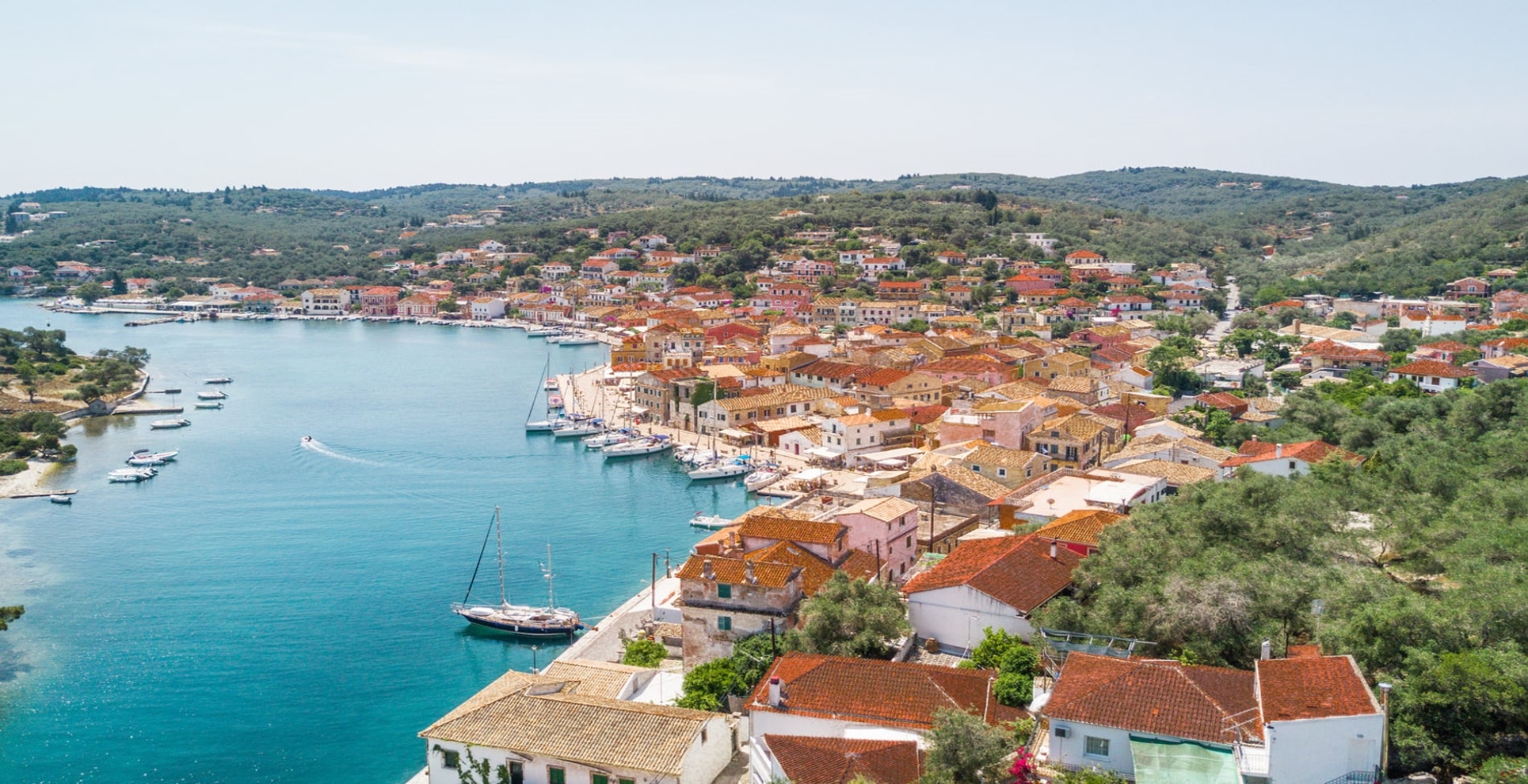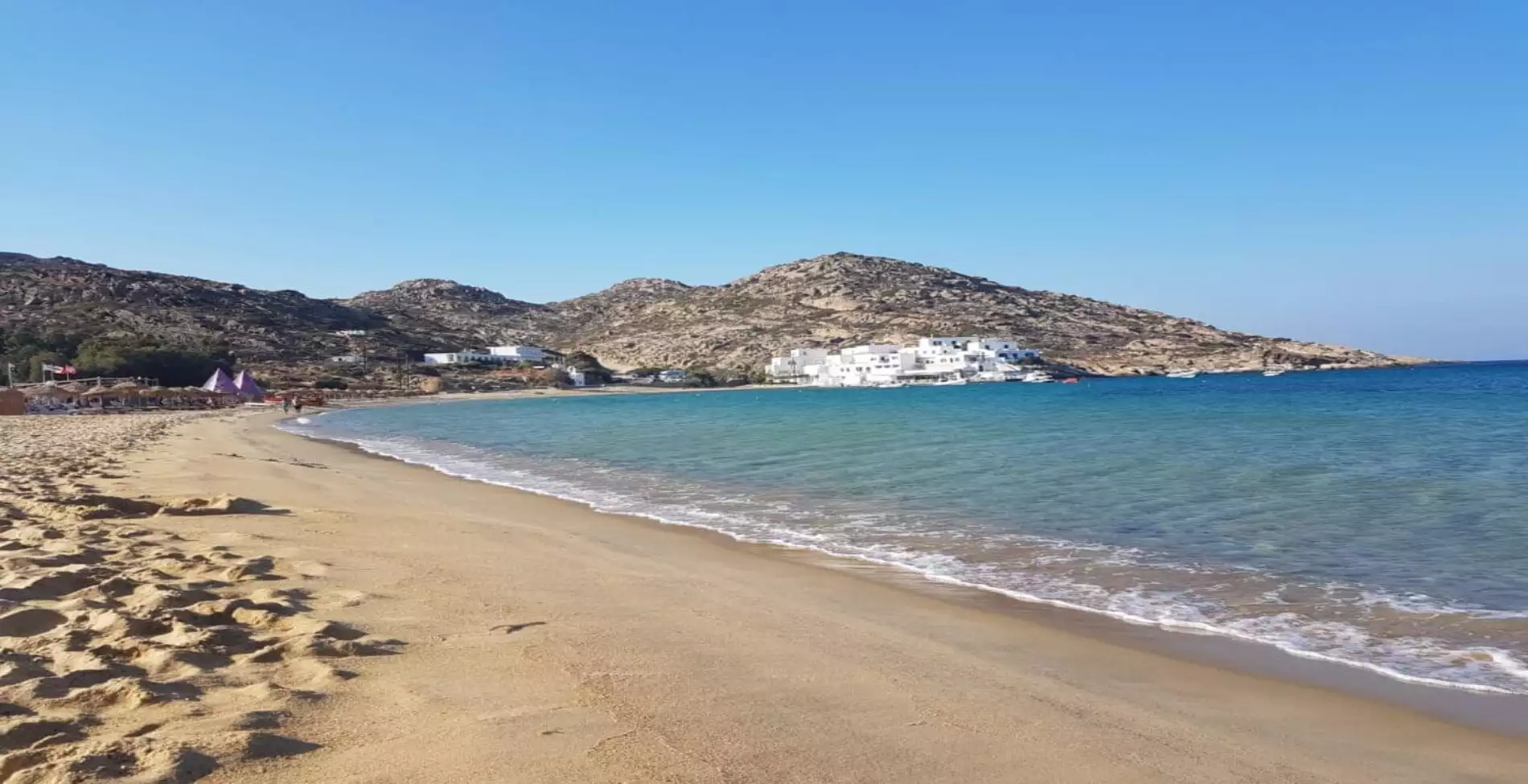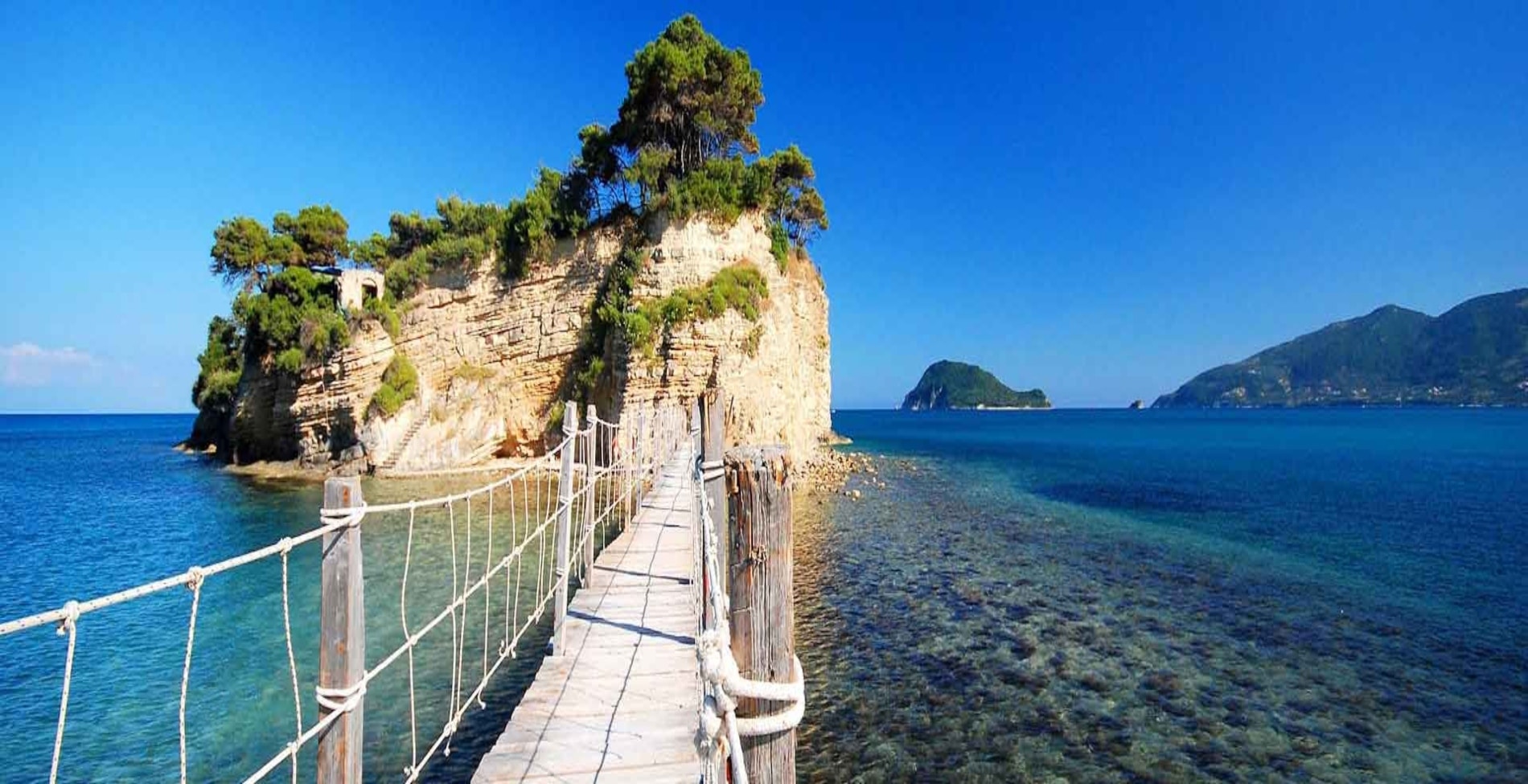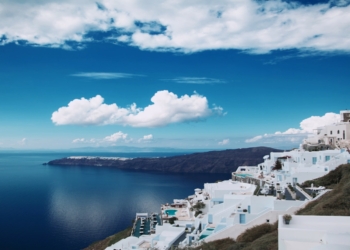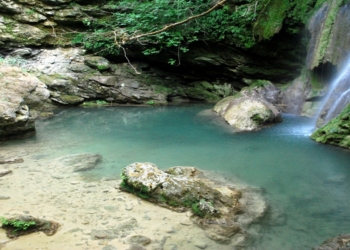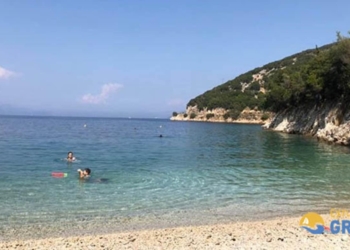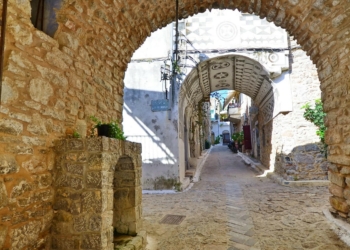Like the names of the cities, so do the names of the Greek islands are not at all random. During antiquity times, there were periods of great geological turbulence and the naming of parts of land that was cut off or islands that changed form also served the need for recording these turbulences. Did you know, for example, that the island of Agistri was once called Kecryphaleia, and so the ancient world understood that it was a reef?”
No name is random and there is a history behind the naming and the meaning of this name. Some of them large and some of them small, each island has its own past and its name has its own interpretation.
What do they mean and how did the names of 21 Greek islands come out
Paxos
The beautiful island of the Ionian Sea took its name from the word “passion”. According to the legend, the god Poseidon, having fallen in love with the nymph Amphitrite, would gain her only if he gave her a land of her own, just as she asked of him. So he picked up his cosmic trident, cut a piece of Corfu, which… he moved a little further south and there, in Paxos, he housed his love with the nymph.
Folegandros
The island of Cyclades at the beginning was called “Polykandros” because it had a very large population. Its first settler was Folegandros, son of Minos, who brought to the island a large population of Cretans while also giving his name to it.
Andros
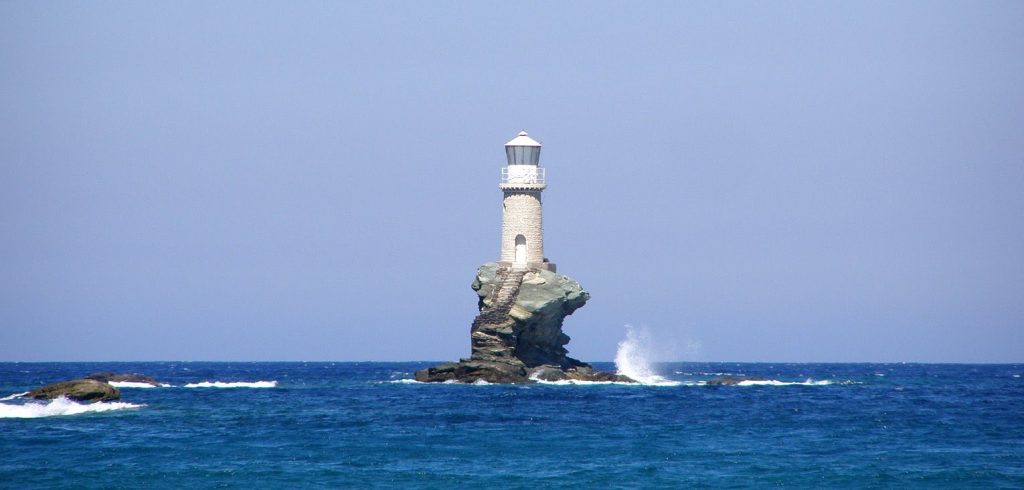
Andros or Andrea was a famous oracle, so great that Rodamanthis, brother of Minos, gave him the island. Rhadamanthis was considered the fairest man in the world and, when he died, he continued to be fair so he became the judge of the Underworld. He considered that the most famous oracle of the time was Andros and so he decided to give him an entire island.
Samos
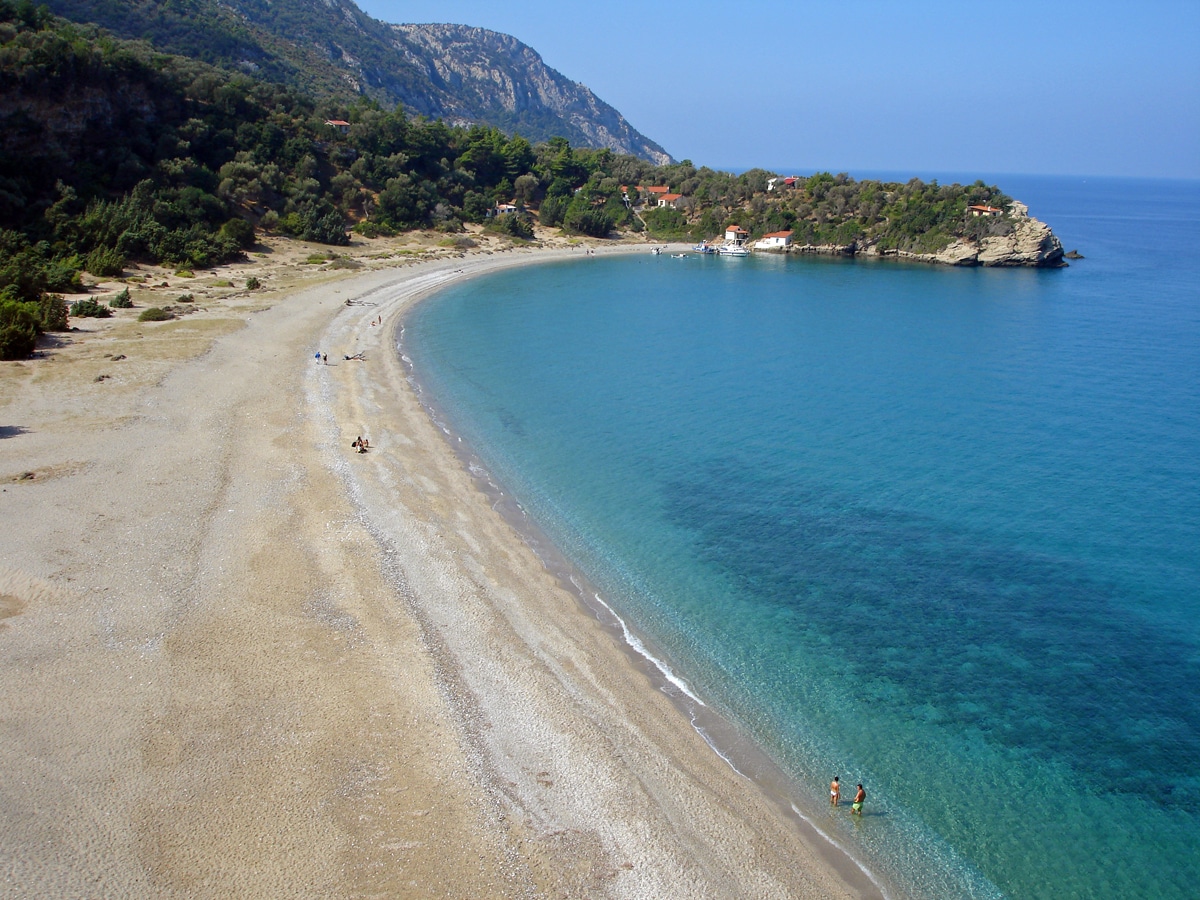
The island of Samos took its name from the Mycenaean word “sami” or “samos”, which means hill next to the coast. The geomorphology of Samos confirms this name since the island has several mountains and elevations.
Tinos
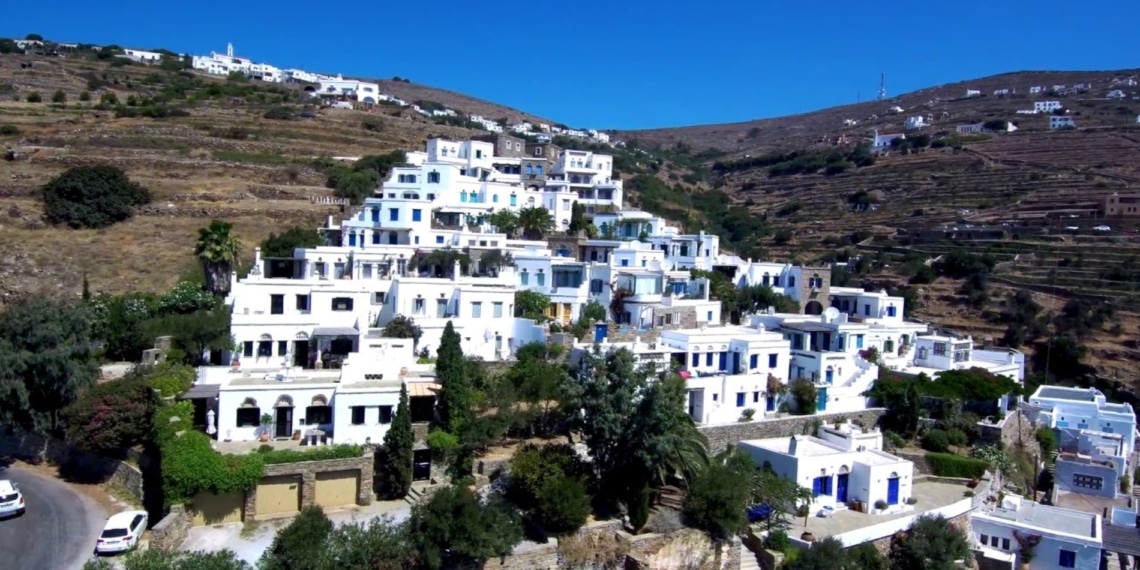
The name of Tinos comes from the ancient Greek root “tan”, which gave us the “tanaos” which means long, because of the shape of the island. The word ‘tanaos’ may no longer be used, but this word also indicates the word ‘tainia (film)’.
Naxos island
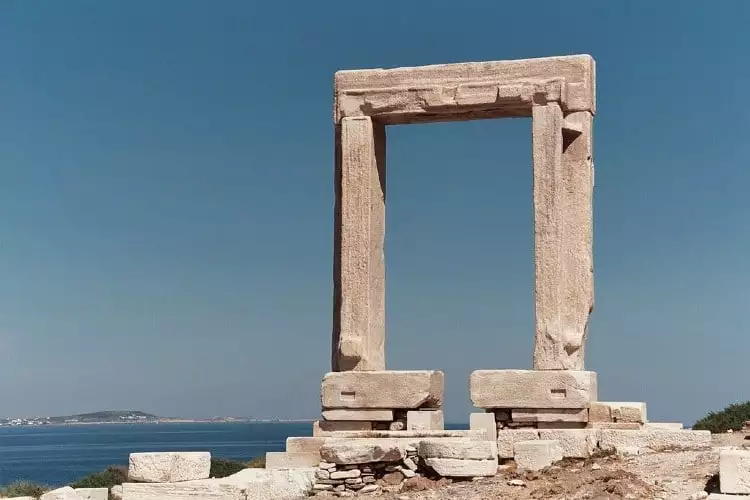
The island of Naxos in ancient times was called Zeus, because it is the largest in the Cyclades Islands. So it was named after the greatest of the gods. When it was colonized by the hero Naxos, Son of Endymion the Lover of the Moon, it was named after the hero’s name getting name it now has. Paros: The name of the island means “beach”.
Ithaca
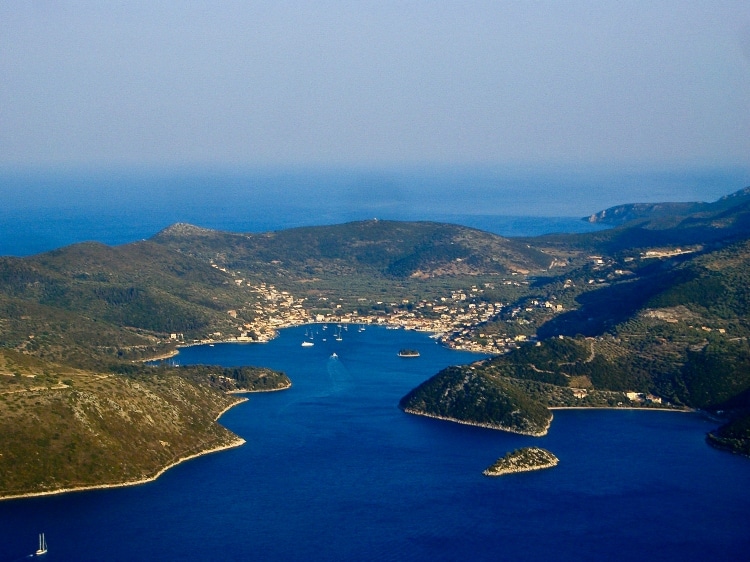
Ithaca took its name from “ithys”, which means straight, alined, long. The long and narrow island. From the word “ithys” comes also the word “ichthys” (fish) because it is also long.
Zakynthos
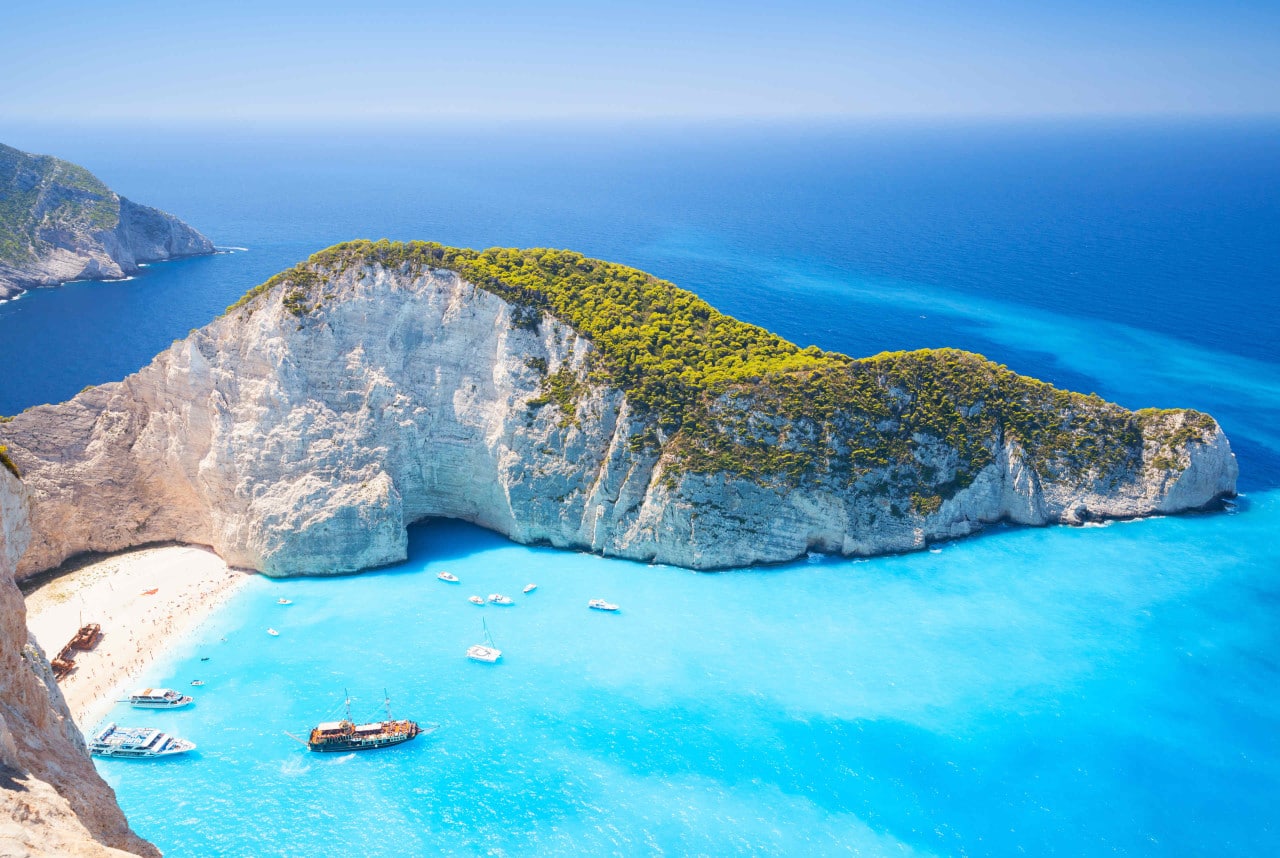
Zakynthos was named after Zakynthos who was the son of Prince Trojan, father of the Trojans. When the Trojan campaign ended, Zakynthos and his people left Troy and settled on an island named after him.
Chios
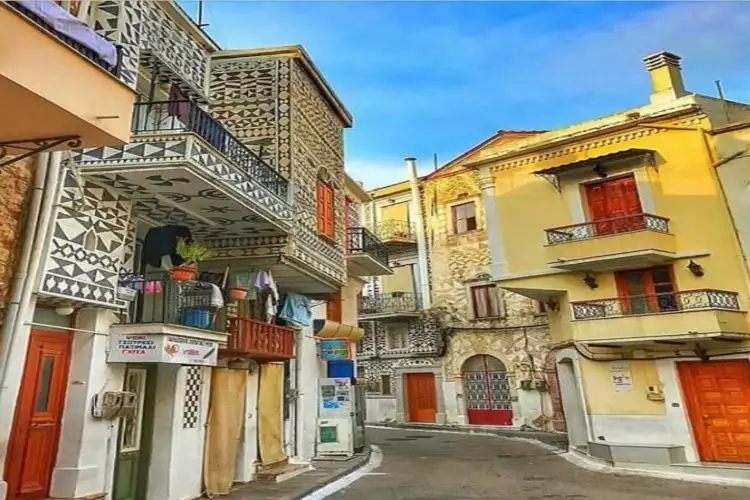
The island was named after Chioni, who was the daughter of Poseidon. When she was born on the island, snow fell, so the baby was named Chioni (snow) and after her the island of Chios was named. They even say that when Poseidon arrived on the island it was deserted and with the snow that fell its soil became fertile.
Crete
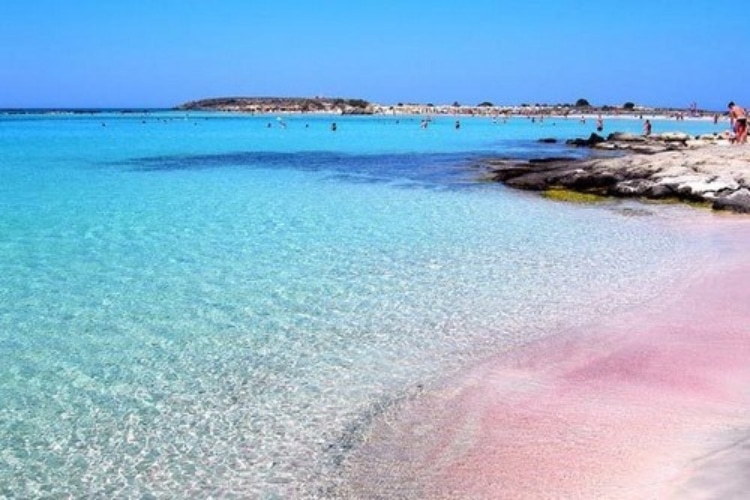
The name of the favourite, for many people, island means crataios. Crataios means strong, powerful. Crete was the largest Sea-Queen in the ancient world and its first guardians were the Kouretes from whom the Cretans took their name.
Kefalonia
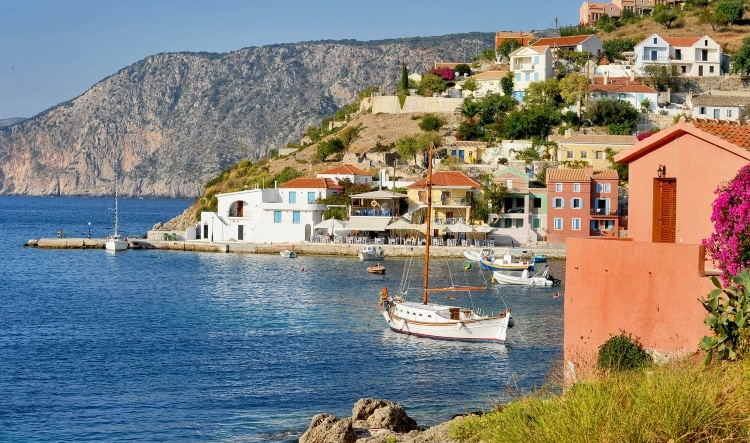
Kefalonia was named after the hero Kefalos, the first ruler of the island, who was an Athenian leader and son of the god Dionysus. Kefalos was expelled from Athens for murder, was exiled and settled on the island. That’s why the correct name is Kefalonia with one lambda (letter “l”).
Ikaria
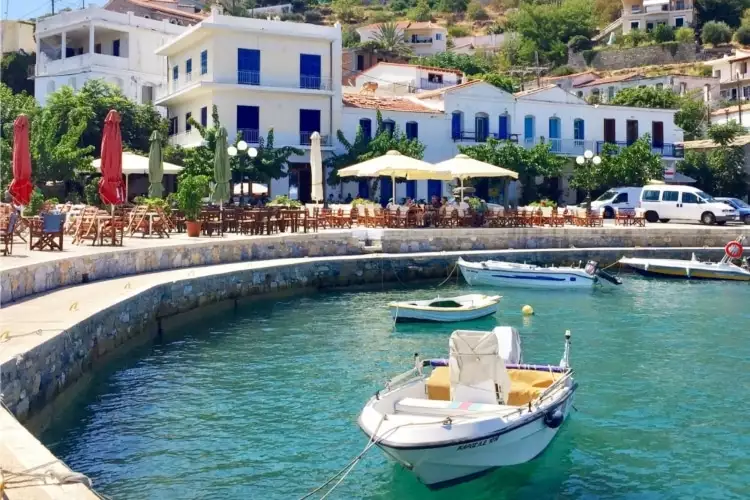
Ikaria was named after Icarus, who, trying to fly with waxwings, fell into the sea and the waves washed away his body on the island.
Amorgos
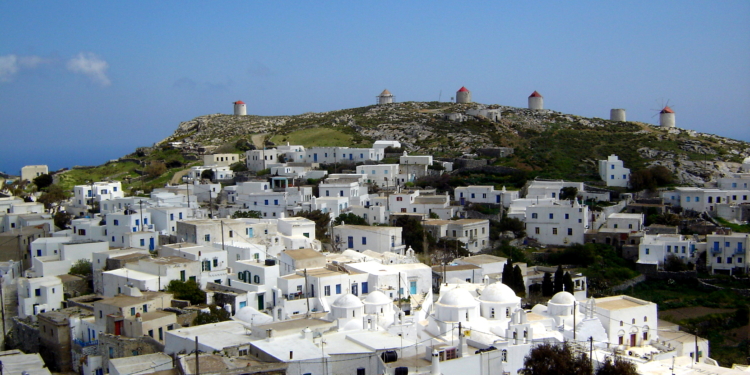
Photo Source: Stathis24
The name of this atmospheric island arises from amorgi, a plant from which the ancients made an excellent flax, a transparent linen fabric. Hence in antiquity, the amorgian fabric was particularly popular, from which they made the best tunics.
Alonnisos

The name of Alonissos is derived from the ancient Greek word “als” (=sea) plus the word island.
Serifos
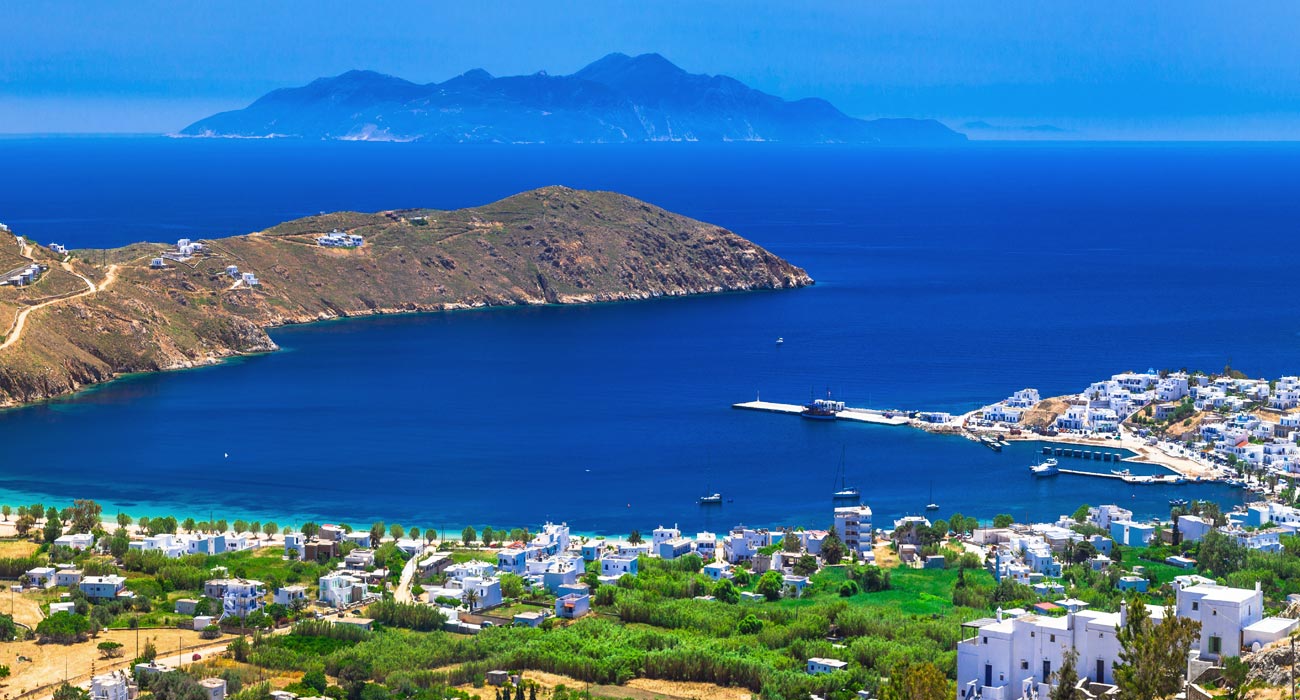
The name of Serifos arises from the root “ser”, which has given us the serifon, a marine plant and also various other herb names. Combined with the abundant gold it had in antiquity, it meant that these herbs were strong and with healing powers. Therefore, the name Serifos denotes the rich in healing powers flora of the island and its a rich subsoil.
Kos
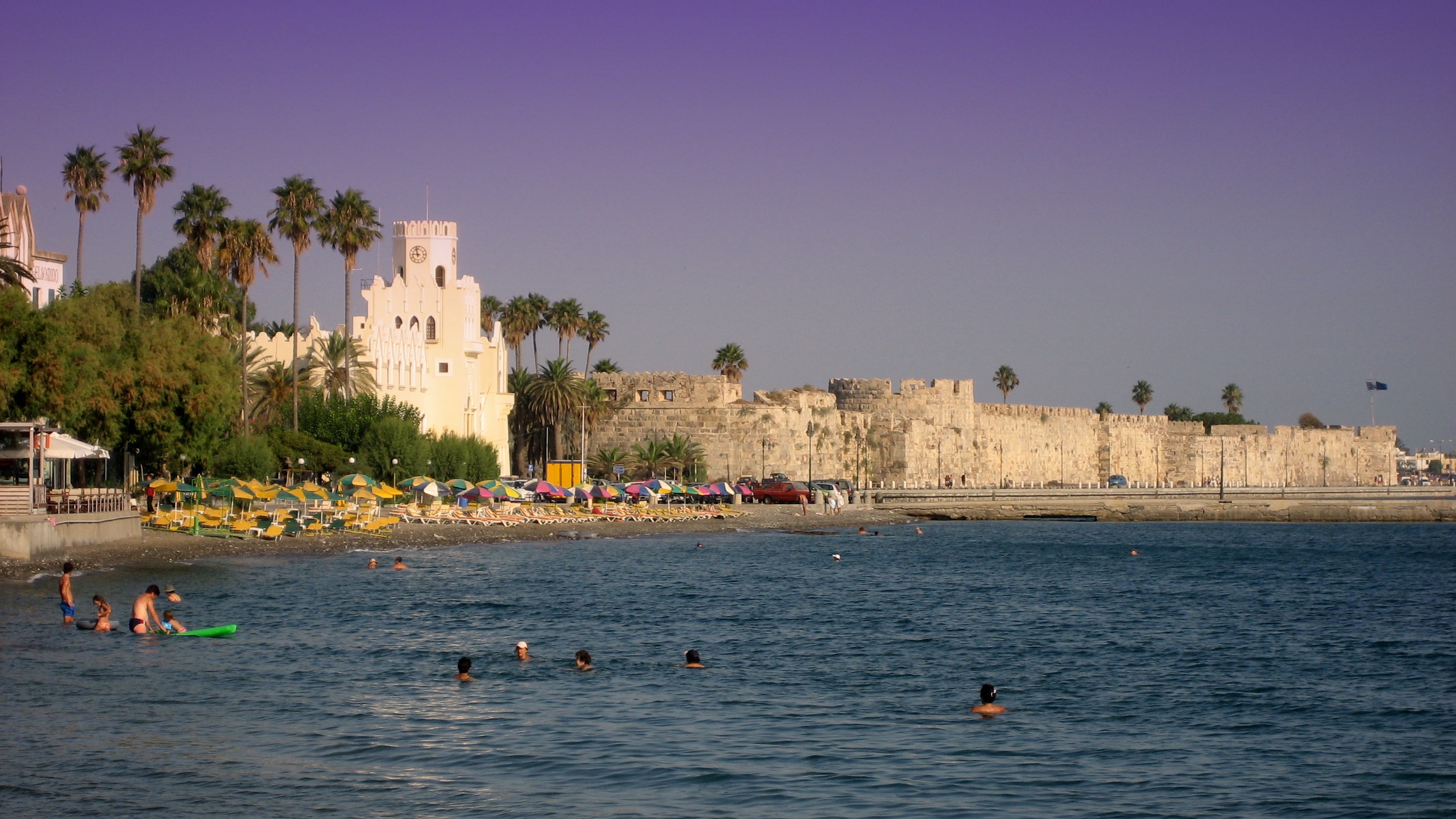
The name of Kos comes from “Kofos” (f represents the ancient bigamma a letter exactly similar to the Latin “F”), which means island with many caves. From “cofos” emerges the word cave, in English, as well as the name of the crab, the shell of which resembles a cave.
Agistri island
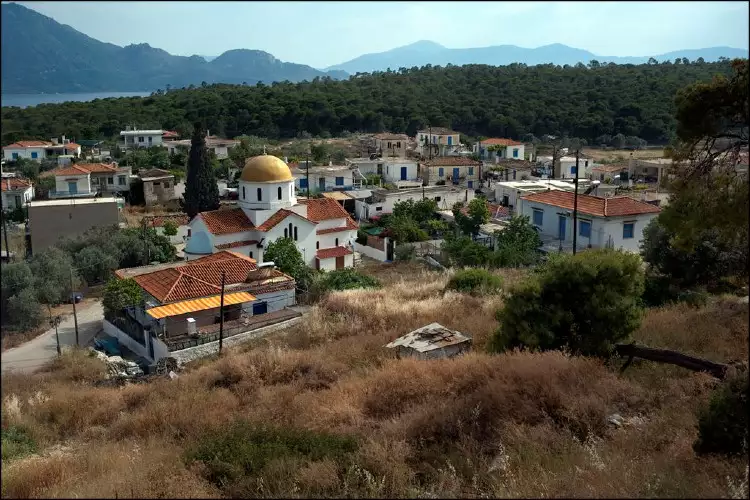
Photo Source: Ggia
In ancient times the island was called Kekryfalia, which meant the top of a reef because it is a small island like a top of a reef. Today it’s called Agistri because it’s hooked to Aegina.
Sifnos
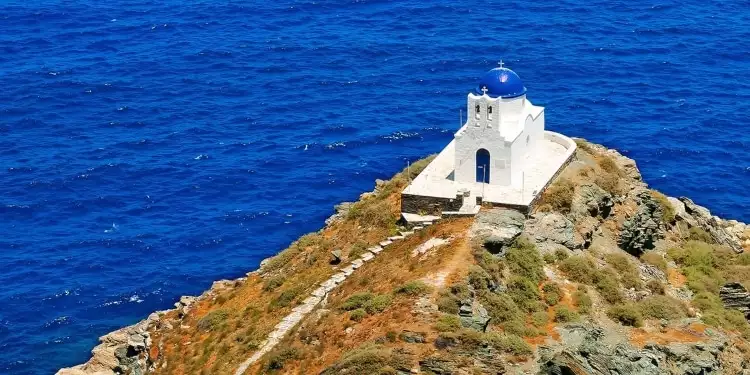
It was named after the hero Sifnos, who was the son of the hero Sounios who first inhabited the island.
Poros island
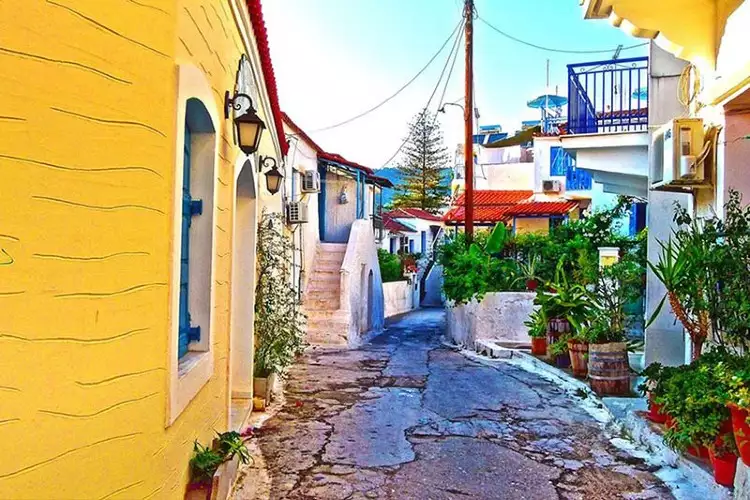
Poros is essentially two islands. One was called Spheria by Sfairos, the chariot driver of Pelops (who remarkably was the denominator of the Peloponnese). Sfairos died and was buried on one island. The other island was Kalauria and was named so because it had a good aura. These two islets became one and were named Poros because there is a small passage (poros) that separates the island from Galatas.
Lefkada
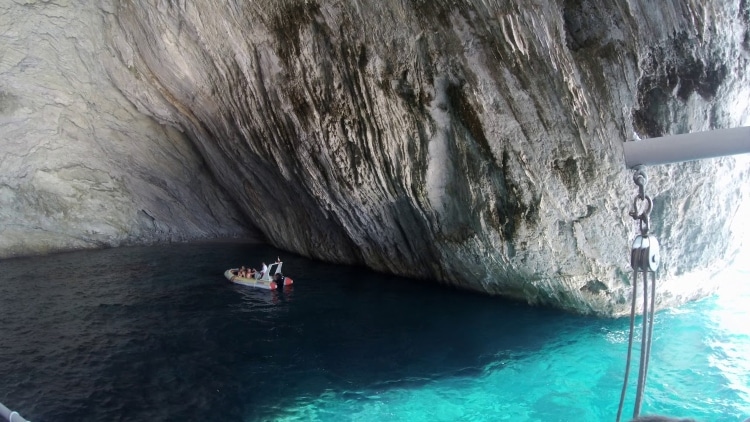
The name of Lefkada is delivered to us by Homer. It comes from the “white” because it was white, i.e. it had white soil. The name of the island of Lefkada is delivered to us by Homer and comes from the colour “white”.
Skiathos
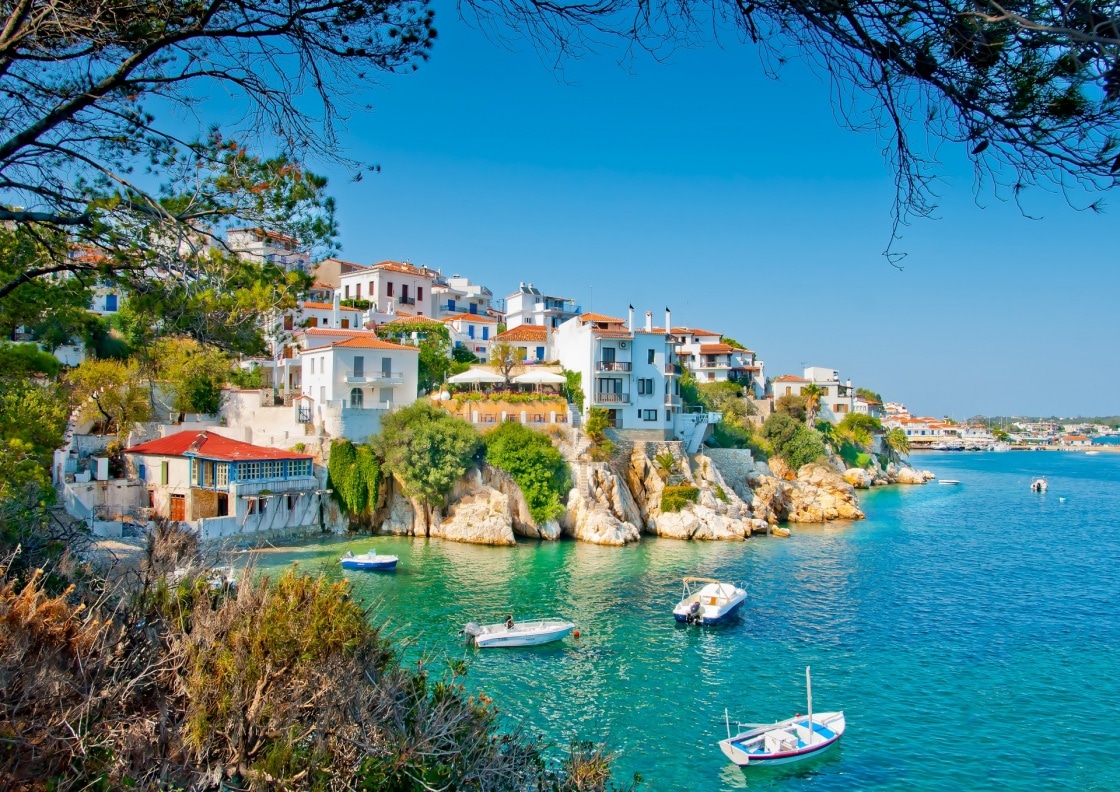
The name that Skiathos has, arises from the shade because it is a very shady island with many trees. Another interpretation states that the name arises from the shadow of Athos, which “falls” on the island.
Evia
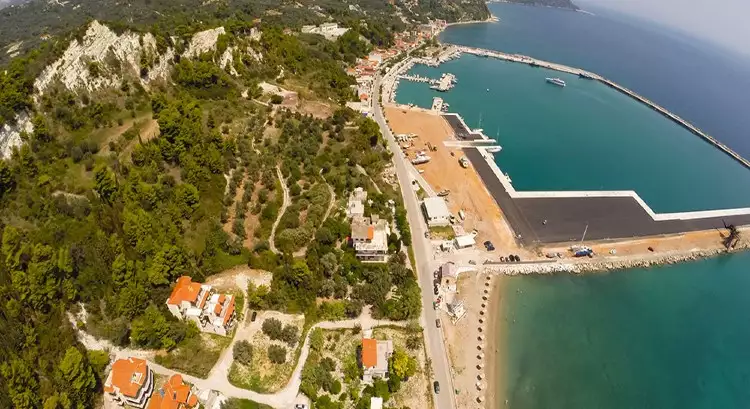
The country with the good oxen, because of the many herds of oxen it had. It is well known that oxen consume large quantities of food and could not survive on a small island. In fact, in the coins of Evia, in antiquity, there was a cow as a symbol.
External photography source: Anemos2000
With information from the book “Aegean Islands” by Giorgos Lekakis
Travel to Greece – Google News – Follow us
Read Also:


